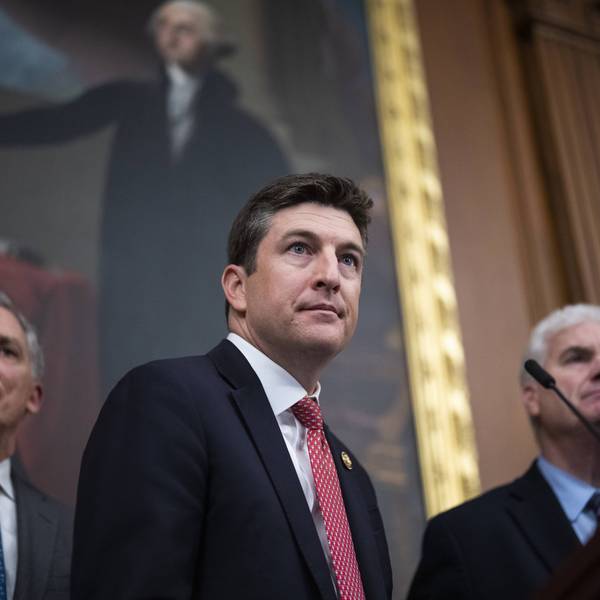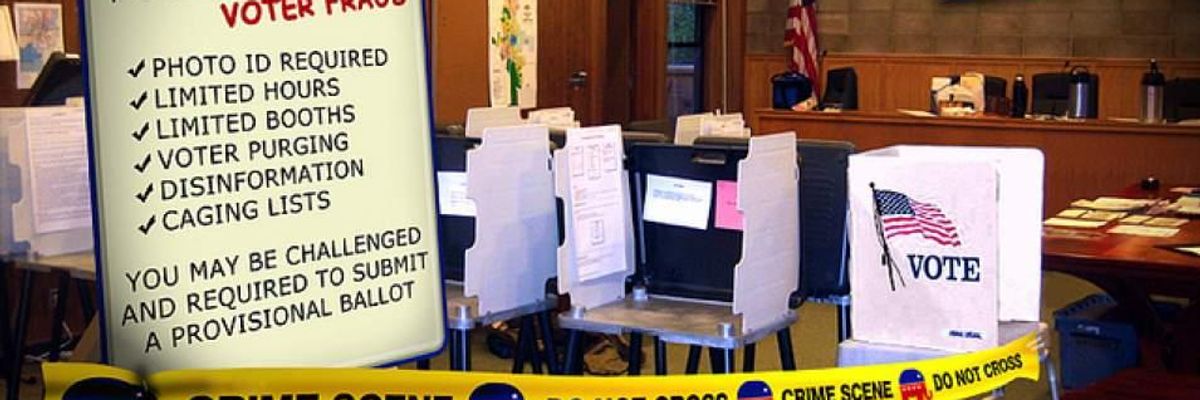Federal judges in two states confirmed civil rights advocates' worst fears in twin rulings on Thursday, both declining to block voter suppression efforts that could disenfranchise tens of thousands of voters--revealing that under a weakened Voting Rights Act, Republican-led states intent on keeping Americans from voting can do so with little fear of intervention by the courts.
In Kansas, U.S. District Judge Daniel Crabtree rejected the ACLU's attempt to force the county clerk who oversees majority-Latino Dodge City to reopen a polling place that was closed in September. Without a voting location at the city's centrally-located Civic Center, 13,000 registered voters will have to travel outside the city limits to vote at a single polling place on November 6.
With the new location a mile from the nearest bus stop, the ACLU had demanded that the old location be opened in addition to the new polling site to grant voters accessibility and spare them from waits that can last up to two hours on Election Day.
Crabtree argued in his ruling that reopening the Civic Center to voters on Tuesday would cause "more voter confusion than it might cure."
The ACLU of Kansas has issued a call for volunteers and organizations to drive residents to the polling place on Election Day, and wrote on Friday that "the need for transportation for voters appears to be sufficiently covered."
"We commend everyone who has been directly involved and who has remained engaged. But Dodge City should draw our attention to a larger picture of the many roadblocks dropped in front of Kansas voters," the group said in a statement. "It should compel us to remain vigilant. Voter suppression efforts take on many forms in policy or practice across the state."
Crabtree's decision was mirrored by that of U.S. District Judge Daniel Hovland in North Dakota, who ruled on Thursday that the state's new rule requiring that all voters have photo IDs that show a residential street address must be upheld for Election Day.
In their lawsuit filed on behalf of the Spirit Lake Tribe and six voters, the Campaign Legal Center and the Native American Rights Fund joined other critics in arguing that the requirement would blatantly disenfranchise Native American voters, many of whom live on reservations where they use P.O. boxes instead of street addresses.
Tribes have taken matters into their own hands in recent days, helping at least 1,360 people to obtain new IDs with street addresses since the rule was announced last month, as the groups prepared their lawsuit. But the federal court offered no help to protect voting rights.
Hovland argued that blocking the rule less than a week before the election would cause confusion for voters--despite having ruled against the requirement earlier this year. An appeals court reversed his decision in September and the state Supreme Court promptly upheld that ruling.
The Campaign Legal Center urged voters to demand a provisional ballot if they are turned away at the polls for lack of a street address.
The decisions come as voting rights groups combat the effects of the U.S. Supreme Court's 2013 ruling which overturned a key provision of the Voting Rights Act, making it easier for states and localities to change voting rules that could affect minorities.




